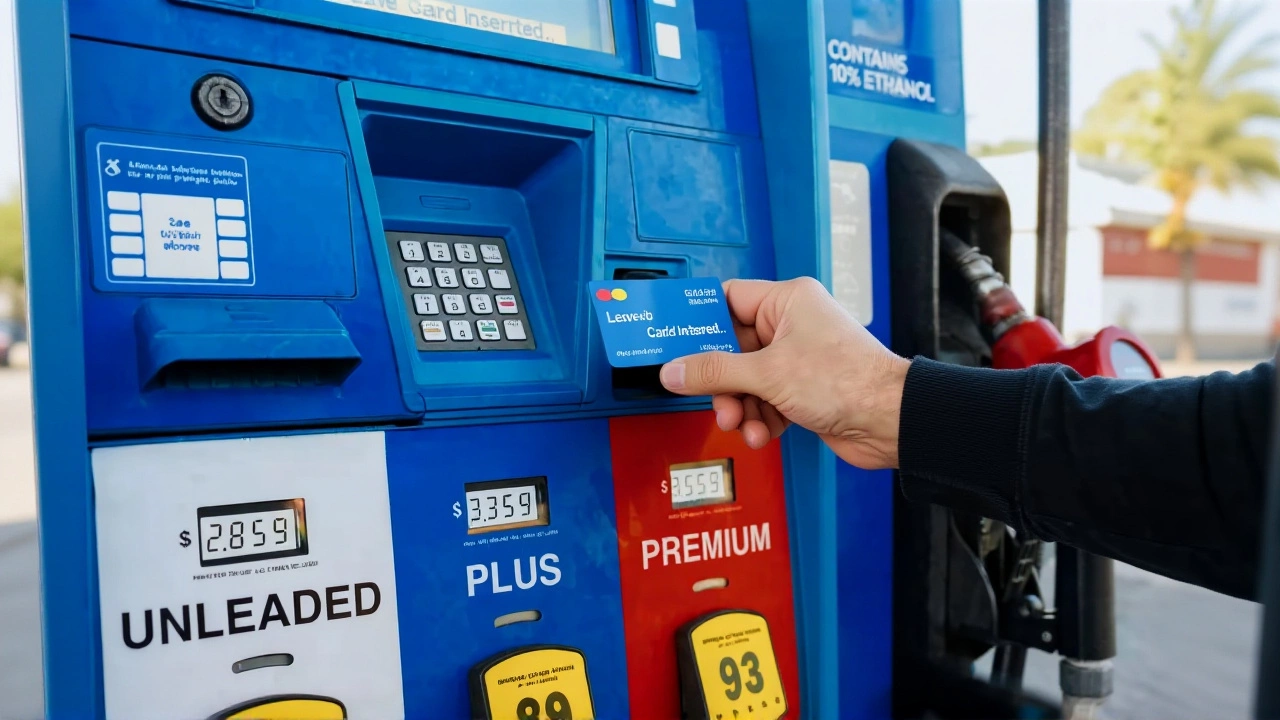Drivers Warned: Gas Pump Scam Drains Bank Accounts via Bluetooth Skimmers
It’s not just your wallet at risk anymore—it’s your entire checking account. Across the U.S., motorists are being urgently warned not to use debit cards at gas pumps after a wave of sophisticated Bluetooth skimming attacks has emptied bank accounts in as little as 24 hours. The scam, which exploded in visibility in mid-2025, exploits a simple human habit: entering a PIN at the pump. Debit card fraud at fuel dispensers is no longer rare—it’s systematic, silent, and devastatingly effective.
The Scam That Doesn’t Leave a Trace
Cybersecurity researcher Boyd Clewis broke the story in a July 23, 2025, video titled 'The Gas-Pump Scam (97% Miss It)', which quickly went viral after revealing how criminals are using tampered fuel dispensers equipped with Bluetooth-enabled skimmers. These devices, disguised as harmless “tap-to-pay” stickers, capture card numbers and PINs the moment a driver inserts their debit card and types in their code. Unlike older skimmers that require physical retrieval, these new models transmit stolen data up to 200 feet away to waiting accomplices—no need to return to the pump. Law enforcement calls them “undetectable” during routine inspections.“The mistake that 97% of people make at the gas pump,” Clewis said in his video, “is something that we naturally do without even thinking about it. And it is putting a debit card into the gas pump and then entering your PIN. Do not enter your PIN into a gas pump.”
One Woman’s $18,000 Nightmare
The human cost is staggering. In Chagrin Falls, Ohio, a 74-year-old woman lost $18,000 after filling up at a local station. Her bank account was drained in multiple transactions within 36 hours. The Chagrin Falls Police Department, located at 3499 Orange Place, confirmed the case in its July 22, 2025, police blotter—and said it’s investigating at least three other similar incidents. But they’ve released no total loss figures beyond this one case.“We’ve seen this before with ATM skimmers,” said Lieutenant Mara Ruiz, a spokesperson for the department. “But this? This is different. The criminals aren’t tampering with the machine—they’re hiding inside it. And the victim doesn’t even know until it’s too late.”

Credit vs. Debit: The Lifesaving Difference
The key to avoiding disaster isn’t avoiding gas stations—it’s avoiding debit cards at the pump. Visa, Mastercard, American Express, and Discover all offer zero-liability protection for unauthorized credit card charges. That means if your card is skimmed, you pay nothing while the bank investigates.Debit cards? Not so lucky. Under Regulation E, consumers have only 60 days to report fraud to avoid liability—but the damage is often done before they even notice. Debit transactions pull money directly from checking accounts. Within hours, thieves can wire it overseas, convert it to cryptocurrency, or cash it out through money mules. Credit cards, by contrast, use the issuer’s money during disputes. Your cash stays safe.
“People think debit is safer because they’re not going into debt,” said Clewis. “But that’s like thinking a locked door makes your house burglar-proof. It just makes it easier for the thief to walk in.”
Industry Alert and Consumer Response
On June 15, 2025, the American Bankers Association issued a formal alert to its members, urging banks to monitor for small “test” transactions—usually $1 to $5—that precede major withdrawals. These are criminals checking if the card data works before hitting it with a full drain.The Federal Trade Commission’s Consumer Sentinel Network has collected preliminary data showing average losses between $1,500 and $20,000 per incident. Victims report unauthorized charges appearing within 24 to 48 hours of pumping gas. Some have lost their entire life savings.
Gas station chains—including unnamed national brands—have reportedly begun installing tamper-evident seals and more frequent security audits. But the real defense lies with consumers.

What You Can Do Right Now
- Use credit, not debit—always—at gas pumps, ATMs, and any terminal that requires a PIN.
- Enable transaction alerts on your bank app. Set notifications for every withdrawal, no matter how small.
- Check your account daily—even if you don’t think you’ve been targeted.
- Report fraud immediately to your bank and file a report at identitytheft.gov.
- Consider identity monitoring—services like Aura (which sponsored Clewis’s video) offer free trials to scan for leaked data.
“If you’ve ever used a debit card at a gas station,” Clewis added, “you’ve already played Russian roulette with your money. The trigger’s been pulled. Now it’s time to change the game.”
Frequently Asked Questions
Why can’t gas stations just fix these skimmers?
Many gas stations rely on third-party payment processors and outdated hardware. Retrofitting pumps with EMV chip readers and Bluetooth jamming tech is expensive, and there’s no federal mandate requiring it. Even newer pumps can be compromised if the internal payment terminal isn’t physically secured. Law enforcement says the real solution is consumer behavior change—not just hardware upgrades.
Can I still use my debit card if I pay inside?
Yes—paying inside at the counter is much safer. The PIN pads inside are monitored, tamper-resistant, and less likely to be compromised. But even then, avoid entering your PIN unless absolutely necessary. Some stations now offer “no PIN” debit options using contactless tap—though these still carry risks if the card isn’t protected by a virtual account number.
What if I already used my debit card at a pump?
Act fast. Contact your bank immediately, even if you haven’t seen charges yet. Request a new card and ask if they can freeze your account temporarily. File a report with the FTC and your local police. Some banks offer fraud reimbursement if you report within 48 hours—but delays can cost you thousands.
Is this scam only happening in Ohio?
No. While the Chagrin Falls case gained attention, the FTC has received similar reports from California, Texas, Florida, and Pennsylvania. Cybersecurity firms have traced Bluetooth skimmer signals to over 12 states since January 2025. The scam spreads quickly because criminals move between states, targeting rural and suburban stations where surveillance is sparse.
Why do criminals prefer debit cards over credit cards?
Because debit cards give instant access to cash. Credit card fraud takes days to process and often triggers fraud alerts before large withdrawals. Debit cards, however, allow thieves to drain checking accounts in real time—sometimes before the victim even leaves the station. The speed of access makes debit the preferred target for organized fraud rings.
Are contactless payments (Apple Pay, Google Pay) safe at gas pumps?
Yes—far safer than swiping or inserting a physical card. Mobile wallets use tokenization, meaning your actual card number is never transmitted. Even if a skimmer captures the signal, it’s useless without your phone’s biometric lock. But avoid using your physical debit card in the same pump you just used with Apple Pay—some criminals deploy multiple skimming methods at once.





